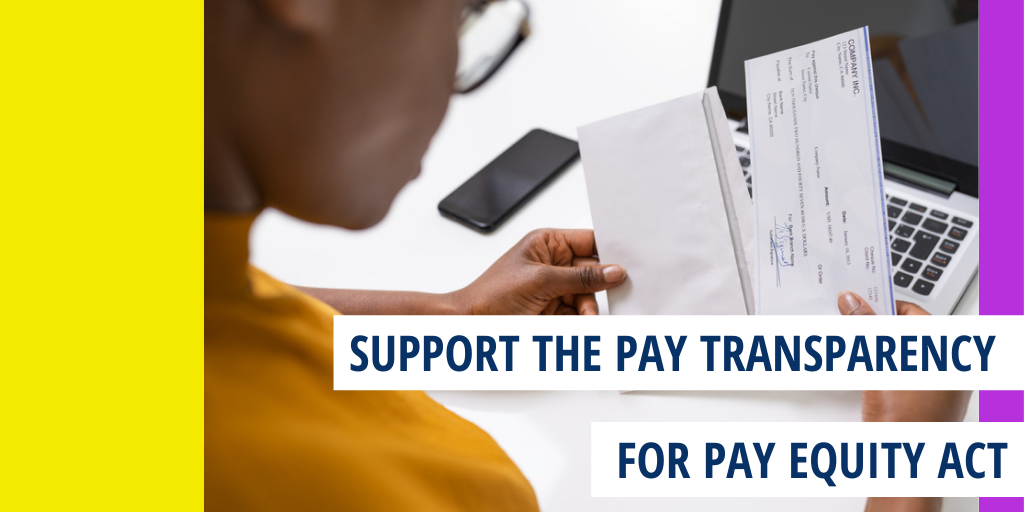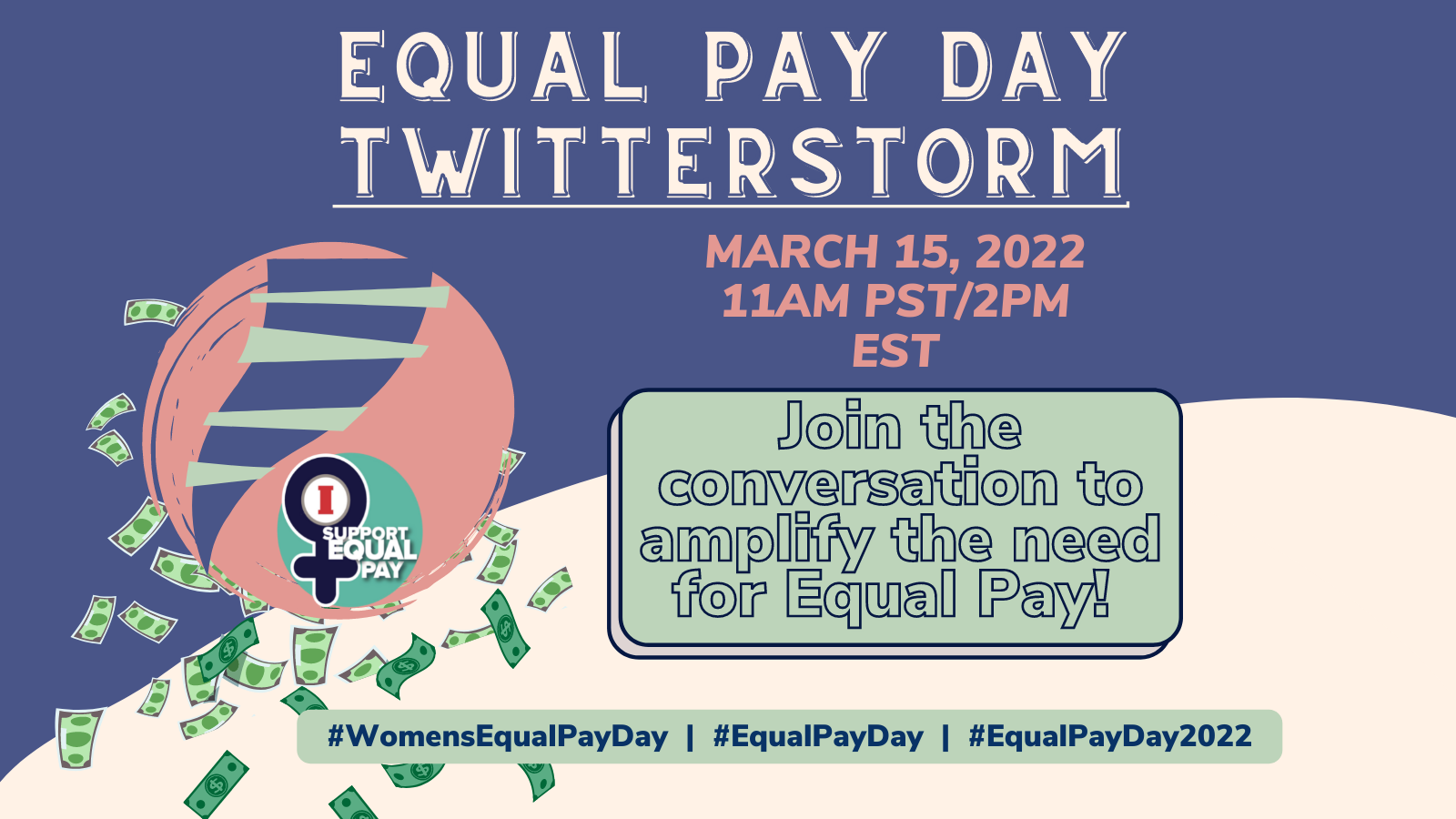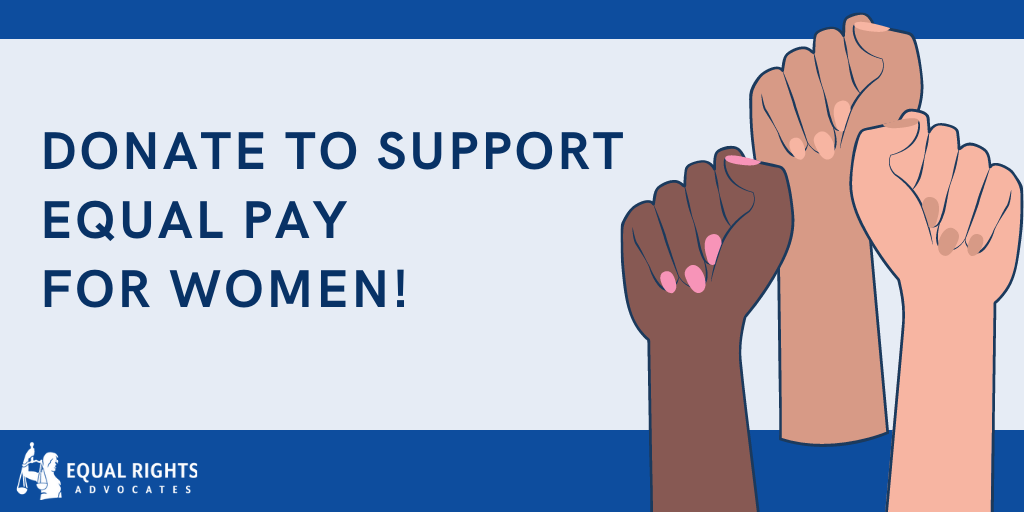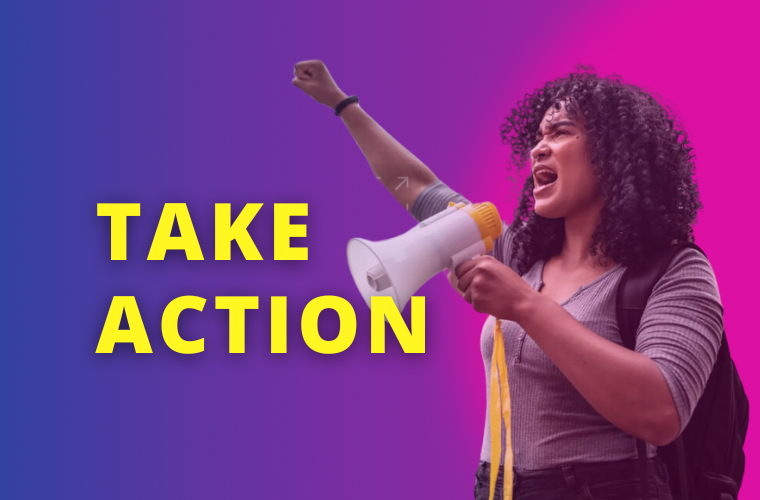

4 Ways to Support Pay Equality on Equal Pay Day
Tuesday, March 15 is Equal Pay Day 2022.
Check out the list below for 3 ways you can support pay equality this Equal Pay Day.
Why March 15? According to U.S. Census data, in 2021, the average U.S. woman was paid only 83 cents for every $1 paid to the average man. In other words, U.S. women must work an extra 3 ½ months to catch up with men’s earnings. That means the average woman loses more than $10,000 every year to pay discrimination. Or, if you’re looking at a 9-5 workday, the average woman starts working for free at 2:40 p.m.
To put this into perspective, if the gender wage gap were eliminated, the average woman would have enough additional money every year for:
- An entire additional year of child care;
- One year of tuition and fees for a 4-year public university, or the full cost of tuition and fees for a 2-year college;
- More than 9 months of rent for the following year;
- 7 months of health insurance (premiums through employer-based plans);
- More than a year’s worth of food; OR
- Enough money to pay off their student loan debt in under 4 years.
For women of color, the statistics are much worse. The information above is an average for all U.S. women. With our Equal Pay Today partners, we raise awareness about the wage gap for women of color throughout the year: AANHPI women have to work until May 3 this year to catch up with the average white man’s earnings from 2021, because they’re paid only 75 cents per $1 paid to white men; for Black women, it’s Sept. 29, at 57 cents; for Native and Indigenous women, it’s Dec. 1, at 50 cents; and Latina women are paid the least, an abysmal 49 cents per $1 paid to the average white man. We and our partner organizations will recognize Latina Equal Pay Day on Dec. 8 this year, but it actually shouldn’t be recognized until 2023, since Latinas have to work more than twice as long to catch up with white men.
What’s new this year?
With our Equal Pay Today partners, we’re focusing on new, more inclusive information that includes income data for workers typically excluded from calculations—part-time, migrant, seasonal, and gig workers. For too long, these workers have been excluded from equal pay conversations, despite the fact that many of them work more than 40 hour/week because they have multiple part-time jobs just to keep a roof over their families’ heads. Many of these women are essential workers, who are disproportionately overrepresented in the lowest-paying essential fields, such as food service, retail, factory garment production, teaching, daycare and domestic work. Excluding some of our country’s hardest working and lowest paid women from equal pay conversations has created an inaccurate picture of how dire the situation is—especially for women of color. That changes now.
Here are 3 ways you can support pay equity this Equal Pay Day:
#1: Join the Twitterstorm
Use the hashtags #EqualPayDay and #EqualPayDay2022 to help us raise awareness about the wage gap and its impact on women and their families. Retweet ERA, Equal Pay Today, and our partner organizations to engage in a robust online dialogue with advocates and supporters across the nation.
>> Join the conversation on Twitter <<
#2: Email Congress about the Paycheck Fairness Act
Send a pre-drafted email to your Congressional representatives with a few clicks. The Paycheck Fairness Act will help end pay discrimination for women and people of color. Let’s get Congress to pass this bill so we can make sure women—especially women of color—are paid what they’re owed.
#3: Donate to support the national Equal Pay Today coalition
Donate to Equal Rights Advocates, Chair of the Equal Pay Today coalition. Gifts of all amounts make a difference and are very welcome. Your donation will fund programs leading advocacy on legislation to end pay discrimination; fighting the main contributors to the wage gap; and raising national awareness on other Equal Pay Days throughout the year for AANHPI, Black, Native & Indigenous, and Latinx women.
#4: Email California lawmakers to support Pay Transparency

California residents, this one is for you!
CA Senate Bill 1162 will require companies of 100 employees or more to report pay information for contract workers broken down by sex, race, and ethnicity; require internal transparency and public listing of salary ranges on job postings; and will require company pay data to be public.
As we already know, women, people of color, and LGBTQ+ people are more likely to be discriminated against in their paychecks. They’re also more likely to work in contractor positions, which employers take advantage of as an opportunity to evade equal pay laws.
SB 1162 will empower everyone to negotiate for higher pay.
Stay Connected & Take Action
- Get the Latest News & Information Sign up for Email Updates
- Sign Up for Action Alerts Join the Action Team
- Follow Us





